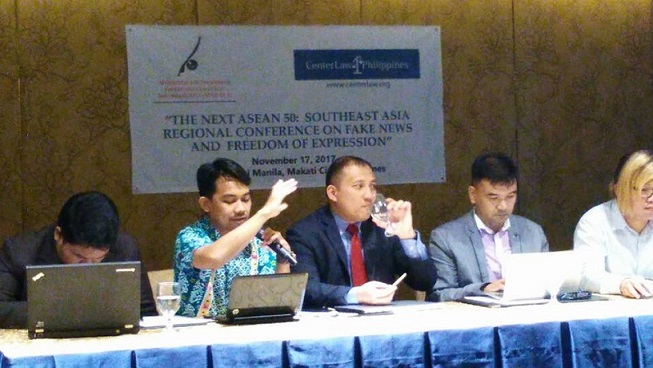
The concern about Fake news has created another concern: in the urgent desire to solve the problem of fake news, we might end up with a cure that is worse than the disease.
Fake News has been blamed for political upsets like the decision of the United Kingdom to leave the European Union and the election of Donald Trump as president of the United States.
In the Philippines, the Duterte government maintains an aggressive presence in social media through its Duterte Diehard Supporters led by a communications undersecretary.
Collins Dictionary, which has chosen Fake News as the word for the year 2017, defines Fake News as “as false news stories, often of a sensational nature, created to be widely shared online for the purpose of generating ad revenue via web traffic or discrediting a public figure, political movement, company, etc.”
Last Friday, the Advocates for Freedom of Expression Coalition- Southeast Asia (AFEC-SEA), Center Law and American Bar Association- Rule of Law Initiative gathered lawyers, journalists and online activists from Cambodia, Laos, Indonesia, Malaysia, Myanmar, Philippines ,Singapore, Thailand and Vietnam to discuss the situation as regards the rise of Fake News with the objective of forging a Southeast-Asian Response.